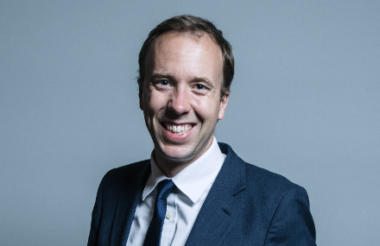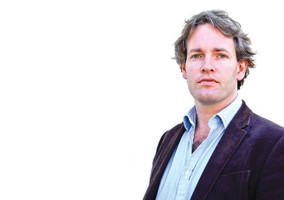The government wants to find more sustainable operating models, which could see the return of grants, and wants to make charities and other civil society organisations more confident when it comes to campaigning, Matt Hancock has said.
Hancock, the secretary of state for digital, culture, media and sport, was speaking at an event related to the Department for Digital Culture Media and Sport’s consultation on Civil Society Strategy this morning.
He said he wants to “preserve and extend the sector’s independence” by making the sector more sustainable and more confident, so that it can play a pivotal role in rebuilding divisions in society.
Grants 2.0
Hancock said that the government is looking at various ways of making charities more sustainable, including a move back towards grants, reform of commissioning processes and social impact bonds.
He said that the civil society strategy is looking at ways of “supporting charities and community groups to become better capitalised and more resilient”.
He added: “I don’t think we spend nearly enough on the small or local organisations.”
Hancock said the government is “investing in a great expansion of social impact bonds, and also exploring how to ensure the Social Value Act delivers on its revolutionary promise, which has not nearly been met yet”.
He added that he believes in payment-by-results and commissioning models but that they are not the answer to everything.
“Tracey [Crouch] and her team are looking closely at whether we can deliver a new era of public sector grants - Grants 2.0, let us call them - without sacrificing the efficiency and focus on outcomes that contracts are designed to achieve,” he said.
Economy depends on strong civil society
Hancock also said that economic growth depends on a strong a civil society.
He said things like culture, sport and running social and community groups “are the things that strengthen our social fabric”. While they are hard to measure, they “make our economy succeed”.
But he also said he wants to make business more responsible and wants to support “growing calls for people to have more power to direct their investments to support good causes”.
‘Respectful criticism of government is welcome’
Hancock said that he thought charities should be campaign on issues that affect society, but that it should be respectful and not done using taxpayer money.
“I want to see civil society recover its confidence to speak into our public life,” he said. “The greatest social and political changes in our history have come about because independent people formed associations to press for change. If that means respectful criticism of government, so be it.”
But he said it would be “wrong” for charities to use government money “pursuing a narrow ideological or political crusade against the government”.
“That would be wrong. It’s natural for me to say that. But I don’t think you should stick to your knitting either – if indeed any of you know how to knit.”
He added that he expects the government’s view on how it wants to work and engage with civil society will be set out clearly in the strategy.
Lobbying Act
Sue Tibballs, chief executive of the Shelia McKechnie Foundation, told Hancock that if he wants the sector to feel confident about campaigning then he should address issues with the Lobbying Act, which she said is discouraging charities from speaking out.
“If you really want to build our confidence...would you please look at it again?” he asked. “It is really stopping us from doing what we know we can do.”
Hancock did not commit to a review of the Lobbying Act, but said he wanted to move to a place where there is “more sensible and sensitive positions” when issues arise that charities want to campaign on.
He also said it is right for charities to highlight issues, but they have responsibility to be respectful and “not point the finger at government”.
Tracey Crouch, minister for civil society, added that she is working with the Electoral Commission on new guidance for the charity sector “to get you some sense of reassurance”.
Related articles












